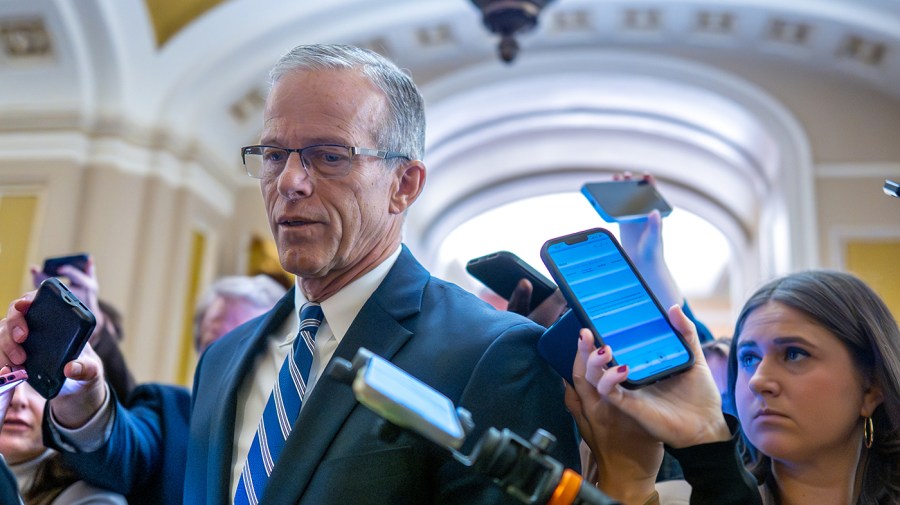The recent off-year elections have intensified the ongoing budget impasse in the United States, with both parties further entrenched in their positions. Following the elections on November 4, 2023, Democrats emerged with renewed political strength, prompting them to insist that health care subsidies be included in any negotiations to resolve the government shutdown. This shift has led to an even greater standoff, as Congressional Republicans maintain their stance that discussions cannot commence until the government is fully reopened.
Prior to the elections, there were glimmers of hope among lawmakers that a compromise could be reached. Centrist senators from both parties engaged in discussions aimed at breaking the deadlock. However, the electoral results, which favored Democrats, have emboldened party leaders to adopt a more hardline approach. House Minority Leader Hakeem Jeffries described the outcome as “a decisive repudiation of Donald Trump and failed Republican policies,” reinforcing the Democrats’ resolve to push for health care reform as part of the budget agreement.
In stark contrast, Senate Majority Leader John Thune criticized the Democrats for using the election results to pressure moderates away from bipartisan discussions. “The pep rally they had at lunch yesterday evidently changed some minds,” Thune stated, expressing frustration over the breakdown of negotiations that had seemed promising just days earlier. By the end of last week, the emerging bipartisan agreement had collapsed, with centrist Democrats signaling that they were far from a resolution.
Election Results and Their Impact
Political analysts had initially predicted that the election results would facilitate a thaw in the partisan deadlock. The expectation was that lawmakers would be more inclined to compromise, particularly given the historical trend of the president’s party performing poorly in off-year elections. Yet, the Democrats’ substantial victories—such as Abigail Spanberger‘s 15-point win in Virginia and Mikie Sherrill‘s 13-point victory in New Jersey—have instead strengthened their position.
The Democrats have called for renewed negotiations to include an effort to prevent enhanced Affordable Care Act (ACA) subsidies from expiring at the end of the year. However, these calls have been dismissed by Republican leaders, who insist they will not engage in discussions until the government reopens under their proposed “clean” bill, which maintains current spending levels.
Senate Minority Leader Chuck Schumer has proposed a one-year extension of the ACA subsidies as a potential compromise. He argued on the Senate floor that it is essential to address the health care crisis while respecting both parties’ positions. Nonetheless, Republicans have quickly rejected this proposal, with Thune asserting that discussions about health care will only begin once the government is operational.
Political Dynamics and Future Negotiations
As the impasse continues, the division between the two parties grows more pronounced. Democrats remain steadfast in their demands, with Rep. Pete Aguilar, head of the House Democratic Caucus, stating, “The Democrats’ position is unchanged.” The electoral results have galvanized the party, increasing pressure from their liberal base to maintain a firm stance.
Despite the ongoing stalemate, there is a growing recognition among lawmakers that President Trump’s involvement is crucial for any potential resolution. Jeffries emphasized the need for Trump to actively participate in negotiations, stating, “He needs to get off the sidelines and get in the game. Because until he does, this government will remain shut down.”
As the shutdown, which has now entered its 40th day, continues, the path forward remains unclear. The widening gulf between the two parties complicates prospects for a quick resolution and raises questions about the federal government’s operational capacity in the coming weeks. With both sides firmly entrenched in their positions, the political landscape is likely to shift further as additional developments unfold.
